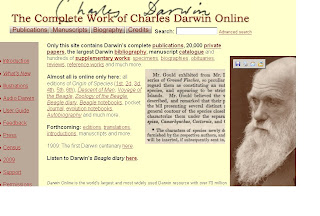I have found on the news 1-2 weeks ago, the announcement for a new search engine - “Wolfram Alpha Knowledge Engine”. I have spent some time searching, but definitely more time is required to get to know it better. It is different from any other search engine I had used. It could of great interest to the sciences & engineering users; health sciences, education , finances, etc.
Read the “iLibrarian” post: Wolfram Alpha Knowledge Engine Launches, which also provides additional articles.
“Searchers using this engine can enter a question or a calculation, and rather than return relevant results, Wolfram Alpha uses its algorithms to digest the query and compute the answer based on its collection of data” …. “Scientists, researchers and techies alike will be interested in this new computational search engine which is running on R Smarr, the world’s 44th largest supercomputer, created by launch partners, R Systems…”
Read the “iLibrarian” post: Wolfram Alpha Knowledge Engine Launches, which also provides additional articles.
“Searchers using this engine can enter a question or a calculation, and rather than return relevant results, Wolfram Alpha uses its algorithms to digest the query and compute the answer based on its collection of data” …. “Scientists, researchers and techies alike will be interested in this new computational search engine which is running on R Smarr, the world’s 44th largest supercomputer, created by launch partners, R Systems…”
Do you like this search engine? Leave a comment.


